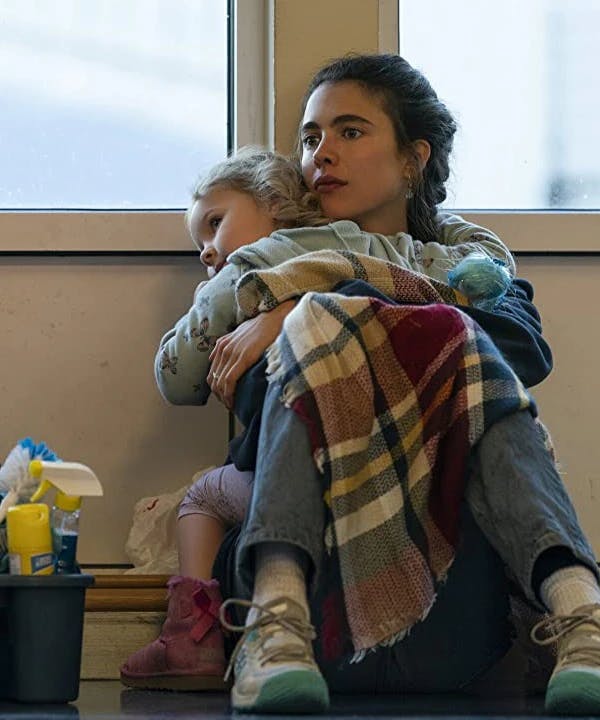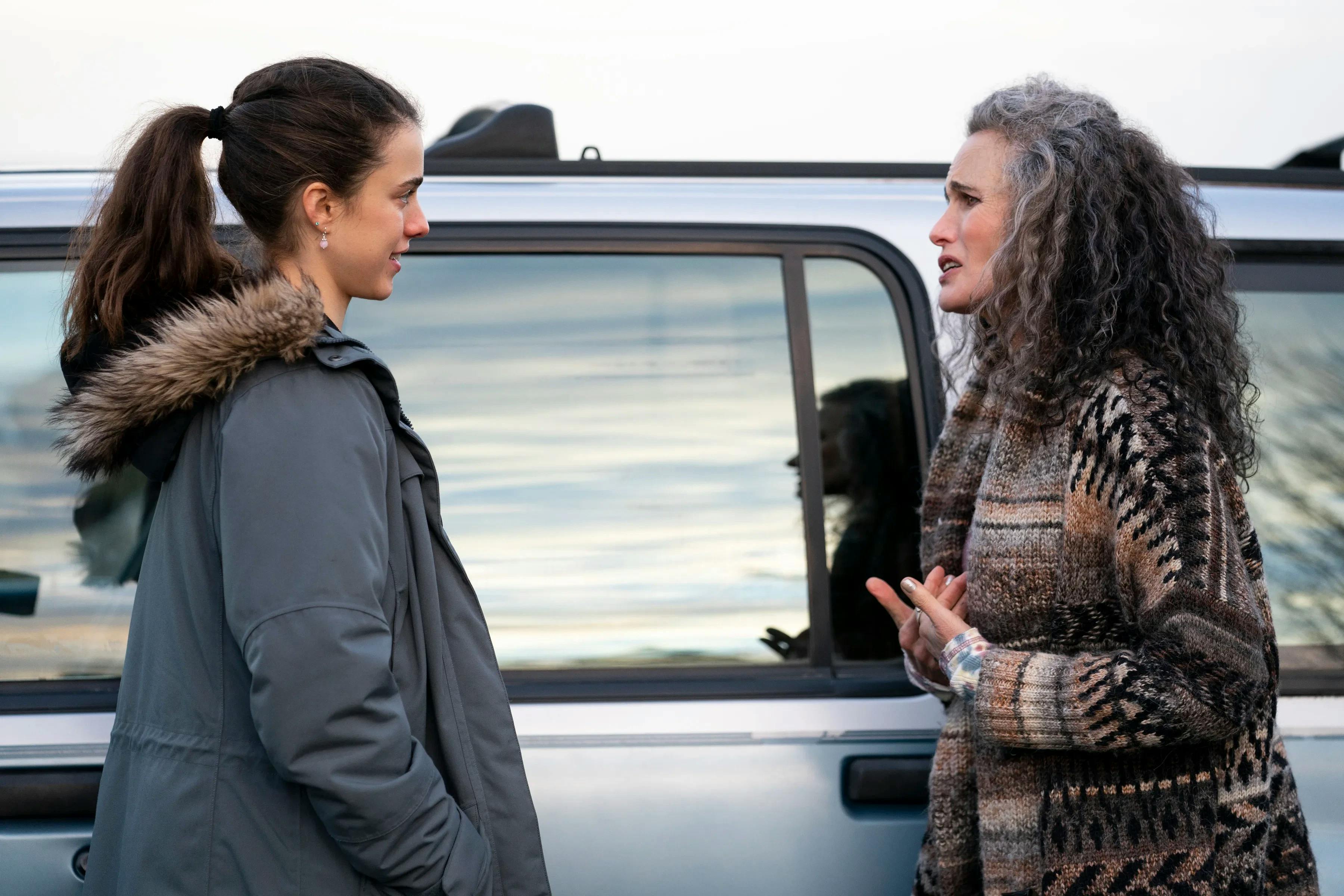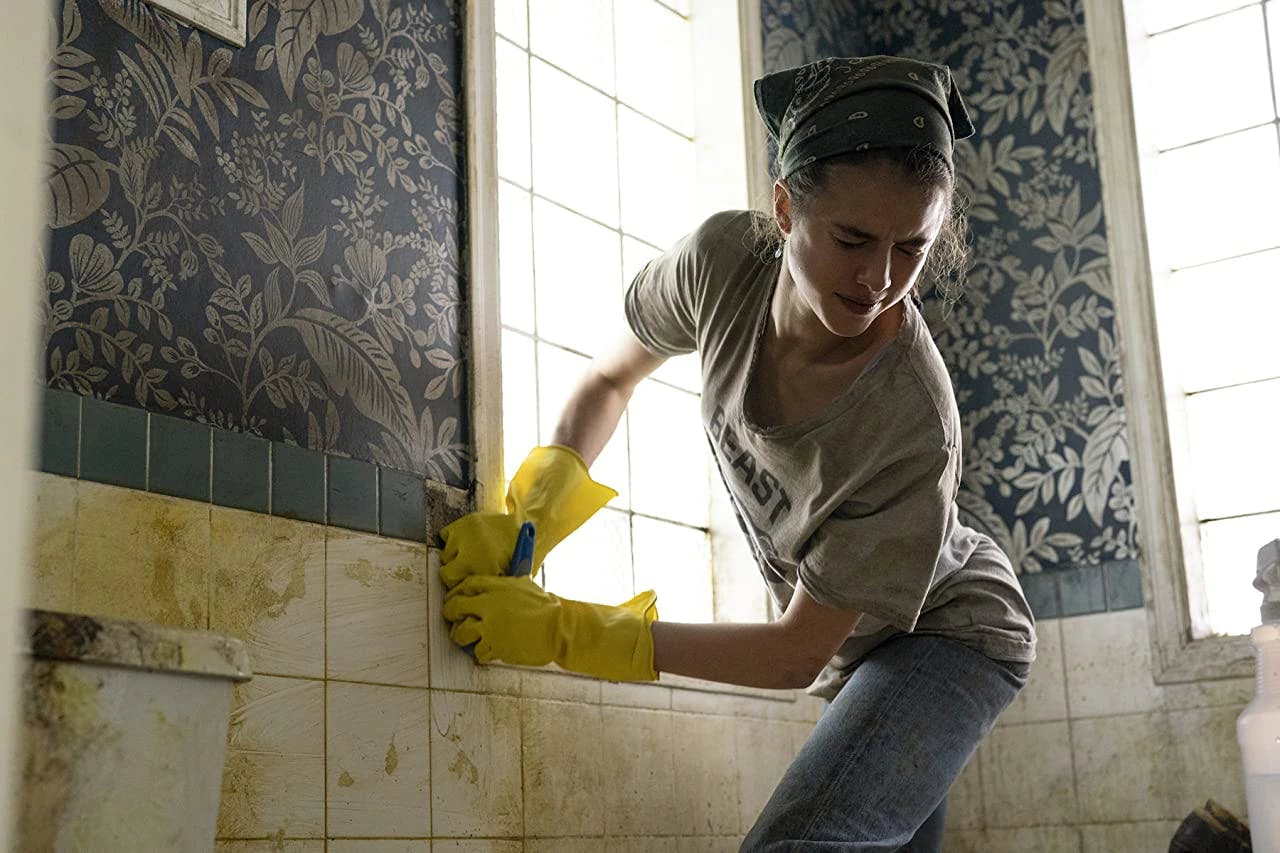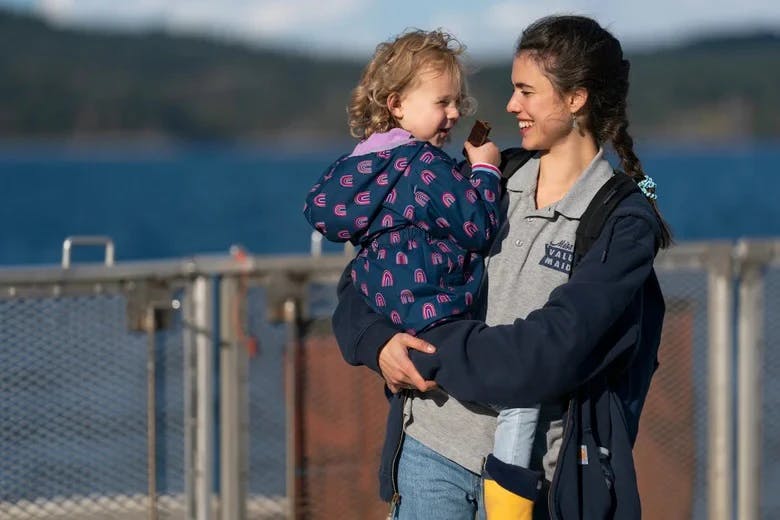Netflix's “Maid” Makes A Surprising Argument Against The Necessity Of Abortion
Pro-abortion advocates’ most well-known rallying cry is that women need abortion, that women can’t succeed without it. This argument would have us believe that women are simply victims of circumstance, rather than a product of our choices.

This idea, that women can’t succeed without abortion, is highly promoted and hotly contested all over Instagram, Twitter, and across the nation. An unexpected pregnancy is, apparently, the most tragic thing that can occur to a woman, and as a result, pro-abortion advocates insist that it’s a direct attack on women to take this so-called right away.
Standing up starkly against this argument are many modern women in power, such as Elise Stefanik, Kayleigh McEnany, and Amy Coney Barrett, who have excelled in their careers while carrying and raising babies.
Which is it then? Does pregnancy really necessitate failure? Or could this be a sexist stance in and of itself, reducing women to victims and products of our circumstances? What happened to women’s agency and ability to overcome?
Enter the most recent Netflix feature Maid, providing an unexpected, and perhaps unintended, answer to these questions.
Netflix’s Maid, a Recap
The show is a difficult watch, to say the least, and it’s based on the true story of author Stephanie Land, known in the show as Alex.
Alex is a talented, aspiring young writer, forced to postpone a writing scholarship after becoming pregnant the summer before college. As she and her alcoholic boyfriend raise their daughter Maddy in a ramshackle trailer in the woods, he becomes increasingly abusive towards Alex.
Alex is not the first in her family to experience such abuse, cowering in the kitchen cabinet as a child while her mother was beaten by her alcoholic husband. Eventually, her mother, known in the show as Paula, escaped her husband, ending the abuse but launching herself and her daughter into a cycle of boyfriends, drugs, alcohol, and failed business attempts.
Paula is far from being a support system to Alex during her struggles as a single mom and is unreachable and unreliable. Alex constantly saves her mother from herself and is eventually forced to enter her into a psychiatric facility. In short, Paula is more Alex’s child than Alex is Paula’s.
Despite Alex’s tireless efforts to protect and look out for her mother, often at her own expense and to her own detriment, Paula repeatedly attacks Alex verbally, disappears on her, and is entirely indifferent to her daughter’s plight. She constantly dismisses Alex’s abuse, blames her for it, and enables her boyfriend’s alcoholism. Alex is very much alone in her struggle to keep herself and her daughter alive.
Two Women, Two Outcomes
In the show, we have a juxtaposition of two single mothers and their choices. Both face seemingly hopeless circumstances, but their decisions and motivations are radically different, and as a result, produce entirely different outcomes.
Paula focuses exclusively on herself, her love life, and her passions – art and marijuana. This is what, according to modern feminism, we are supposed to do. Shouldn’t Paula be the heroine of the series, then? She’s the epitome of “taking time for yourself” and “self-care.”

Alex, on the other hand, gives up everything for her daughter, desperately trying one thing after another to provide for her, to keep her safe, and to not repeat the cycle that she has been in.
In one particularly poignant scene, Alex discovers her daughter hiding in the kitchen cabinet after a fight with her boyfriend. It’s that moment, so reminiscent of her own childhood which she swore Maddy would not repeat, that gives her the courage to run away for once and for all.
Concern for her daughter forces her to seek out a domestic violence shelter despite her pride and refusal to believe that she has actually been abused. It motivates her to find a job and to eventually go back to college. She faces set back after set back, at one point almost giving up, but her desire for a better life for her daughter ultimately gives her the momentum she needs for the final push to escape her situation.

Moreover, in the midst of her struggles, the few moments of joy and happiness that we see Alex experience in the show are produced by Maddy – Maddy getting into a good preschool, Maddy receiving a gift of brightly colored My Little Ponies in the domestic violence shelter, and Maddy falling asleep on Alex’s chest. The very thing, then, that is supposed to be dragging Alex down and dooming her to failure is actually her greatest blessing.
Our Choices Define Who We Are and What Happens to Us
By stating that women can’t succeed without abortion, pro-abortion advocates are casting women as individuals who have no control over their destinies, whose circumstances completely define who they become. They don’t allow for the fact that women are individuals who have the ability to make choices about who they become, what they prioritize and what they don’t prioritize, and how they respond to unexpected hurdles.
Like Alex in Maid, in our lives, many things happen to us, but as individuals with agency, we have the ability to decide how we respond and to react actively, rather than to sit by and watch as life has its way with us. Alex could have chosen, like her mother, to accept her economic status, to turn to drugs or unhealthy relationships. But she made the active choice to avoid all of these things and to seek better for her daughter.
We, also, make these decisions every day – discerning what job we will take, discerning who we will be in a relationship with, where we will live. Stories like Alex’s show that even the most difficult circumstances lose their influence when set against human determination and resilience.
The Real-Life Alex Doesn’t View Her Pregnancy As a Failure
Every day, women are told an unexpected pregnancy will ruin their lives. But in Alex’s case, that unexpected pregnancy saved her. Not only was Alex incredibly hard-working, ingenious, and determined, but she drew her motivation and strength from a desire to provide for her daughter. She’s able to return to school, breaking the family cycle of violence and abuse. Alex’s choice to look outside herself and find purpose in caring for others frees her.
While the show is left open-ended, Stephanie Land (the real-life Alex) graduated from the University of Montana with a Bachelor’s in English and creative writing in 2014. Her book, Hard Work, Low Pay, and a Mother’s Will To Survive, made it onto the New York Times Best Seller List and Obama’s 2019 Summer Reading List. Her story is now a Netflix special touching millions. On her blog, she writes, “People have blamed my tumble into poverty on an unexpected pregnancy. I have a hard time seeing it that way.”

Her mother chose not to prioritize Alex and chose to prioritize herself and her immediate pleasure. As a result, Paula is left, at the end of the show, still in the same cycle she’d been in the last 20 years – living with a new boyfriend who will most likely leave her in a few weeks as the others did.
In the face of hurt, hopelessness, and heartbreak, both women made decisions based on their circumstances: one choosing to focus on her own survival, and the other choosing to care for someone else. Neither lost their agency as a result of their pregnancy; both of their lives were influenced by their circumstances but were also result of their choices, for better or for worse.
We know pregnancy is a life-changing thing. But, as Maid so perfectly shows, it’s not something that is by nature life-changing in a destructive manner and is often an incredible gift. Similar to so many transformative experiences, it was the way that Alex and Paula acted on it that determined the way in which their lives were changed.
Closing Thoughts
Women have agency regardless of whether they become pregnant on purpose or not. Women do not have to be victims of their circumstances – we are a product of our choices, and still have the freedom to decide our own future.
Readers make our world go round. Make your voice heard in the official Evie reader survey.